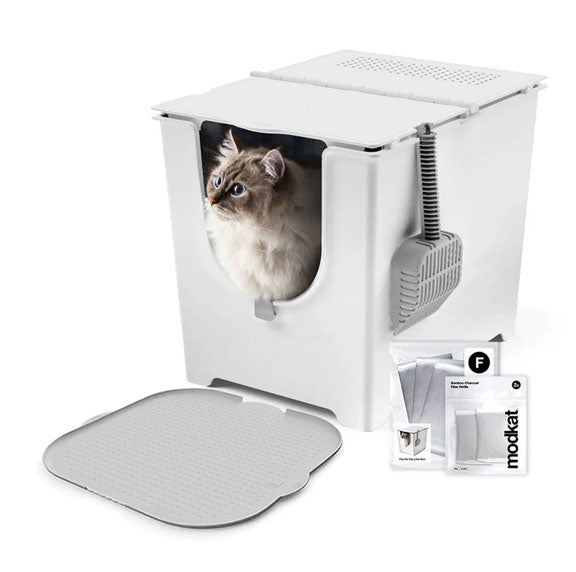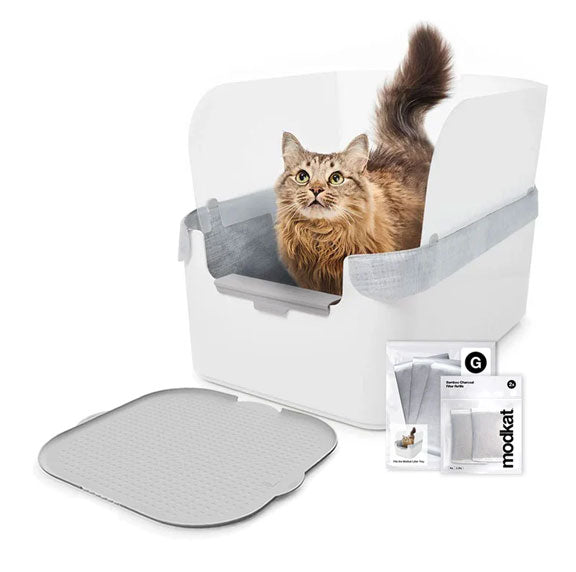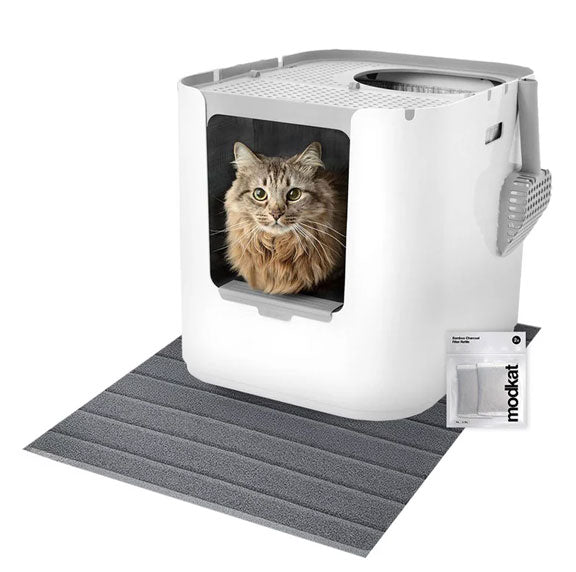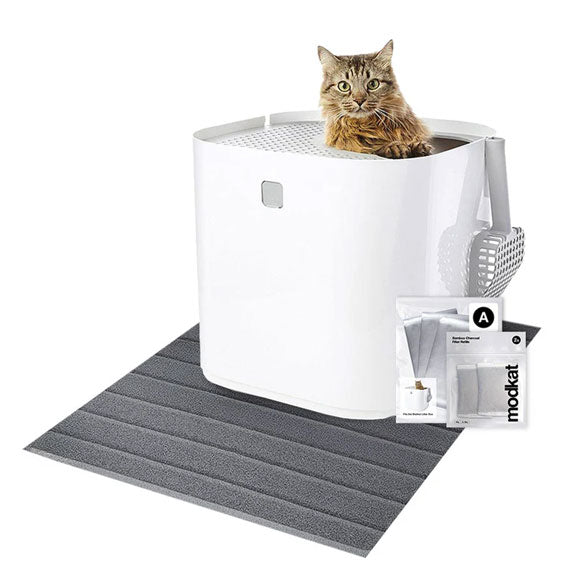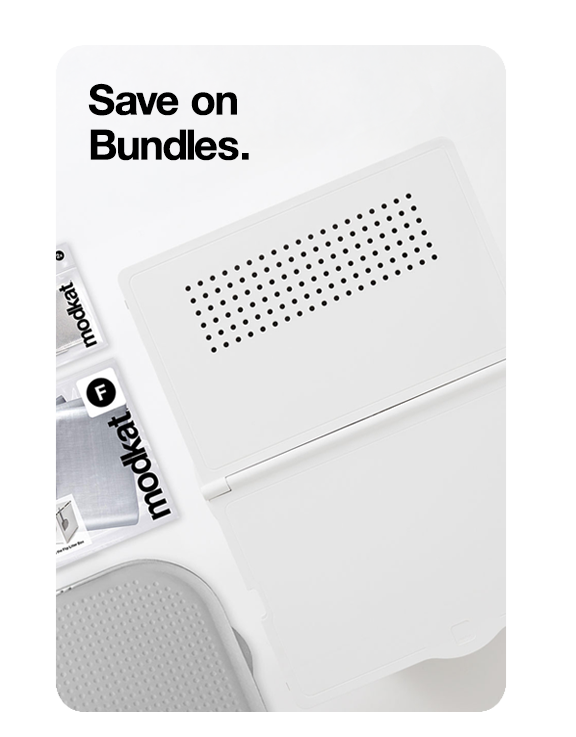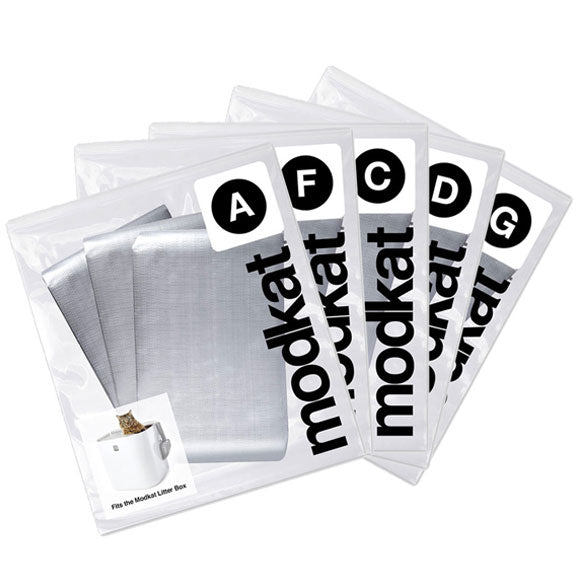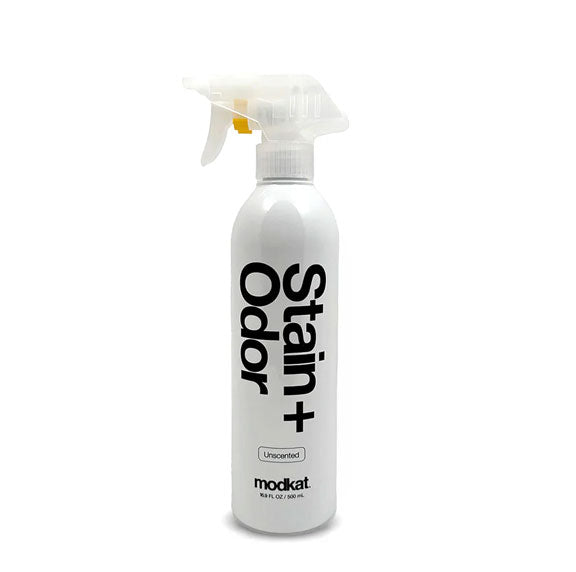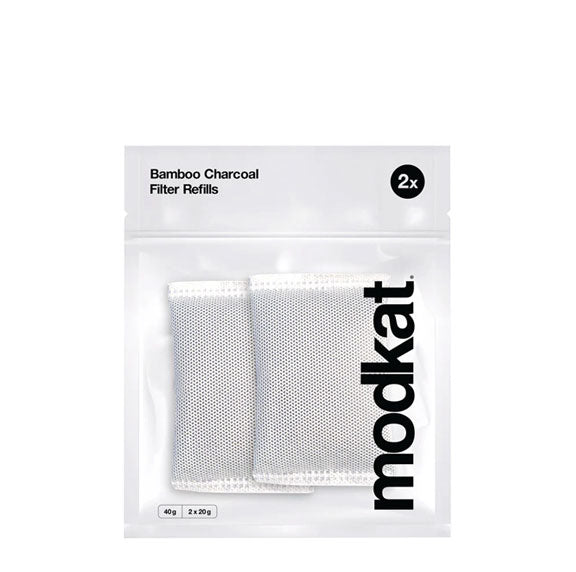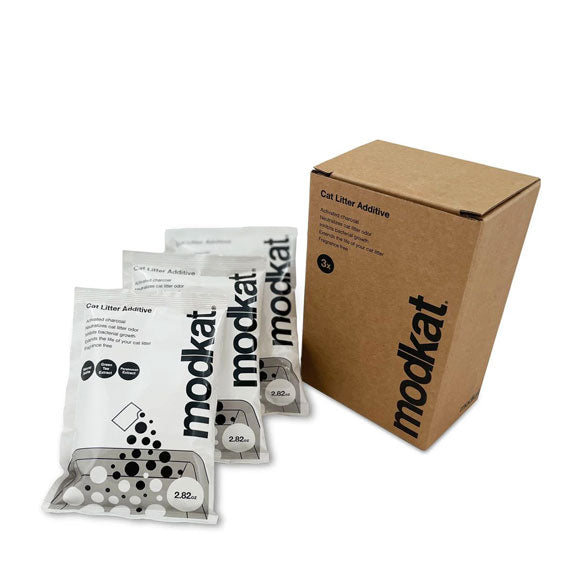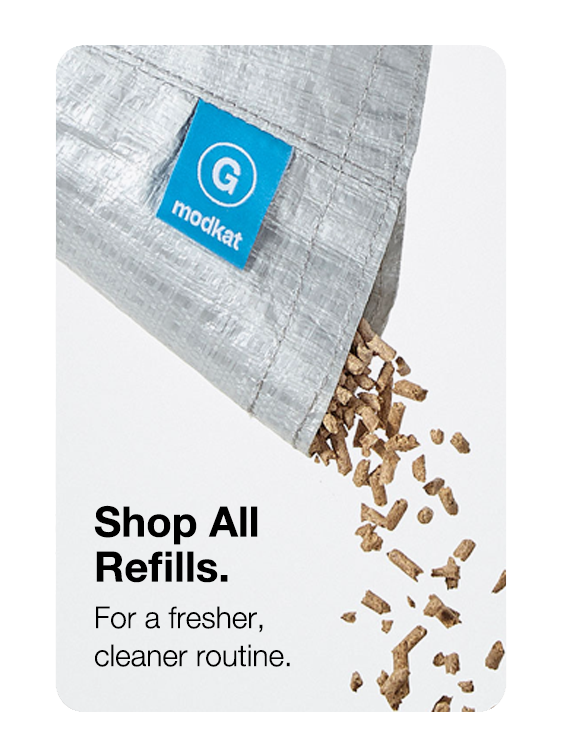20% off sitewide. Discount automatically applied.
20% off sitewide. Discount automatically applied.
Litter Boxes
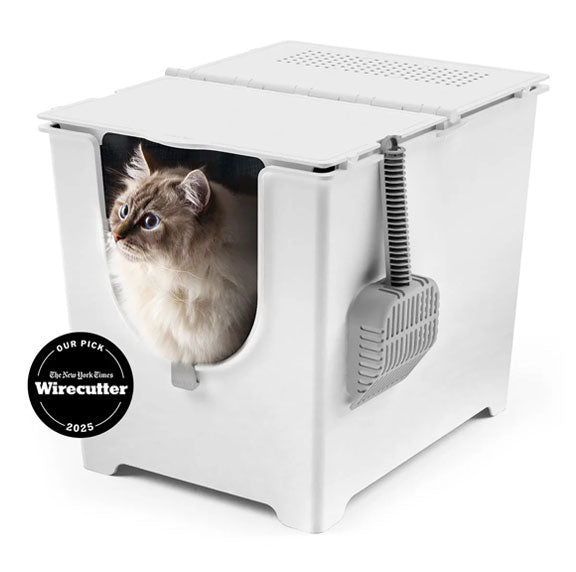
Modkat Flip
Front-Entry Litter Box
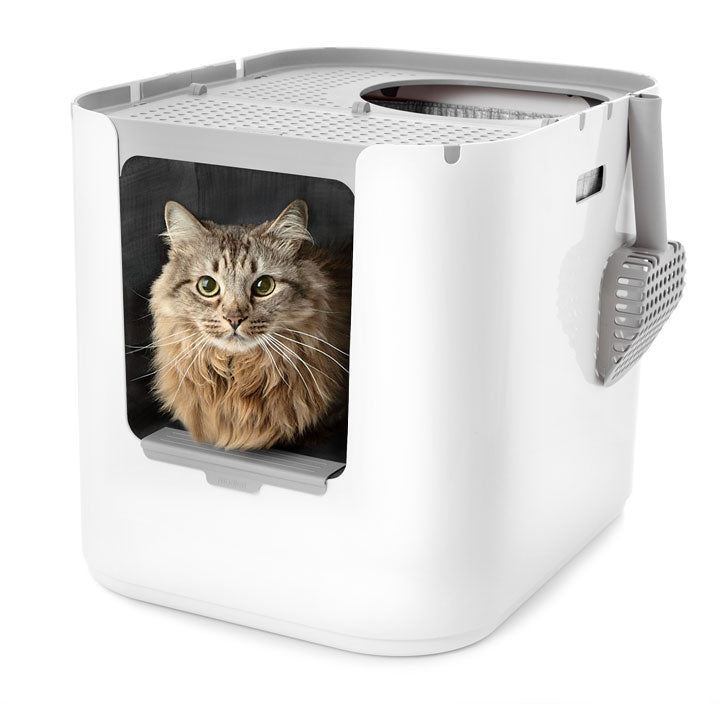
Modkat XL
Front/Top-Entry Litter Box
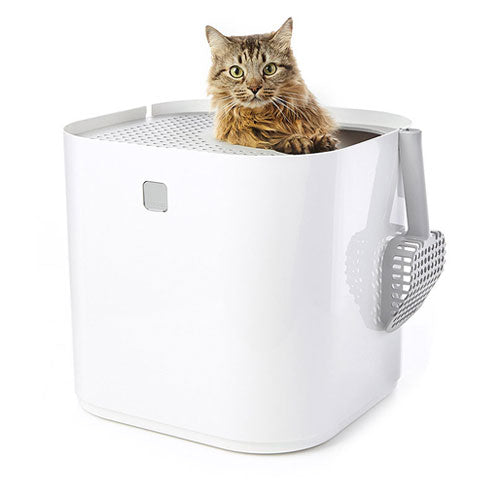
Modkat
Top-Entry Litter Box
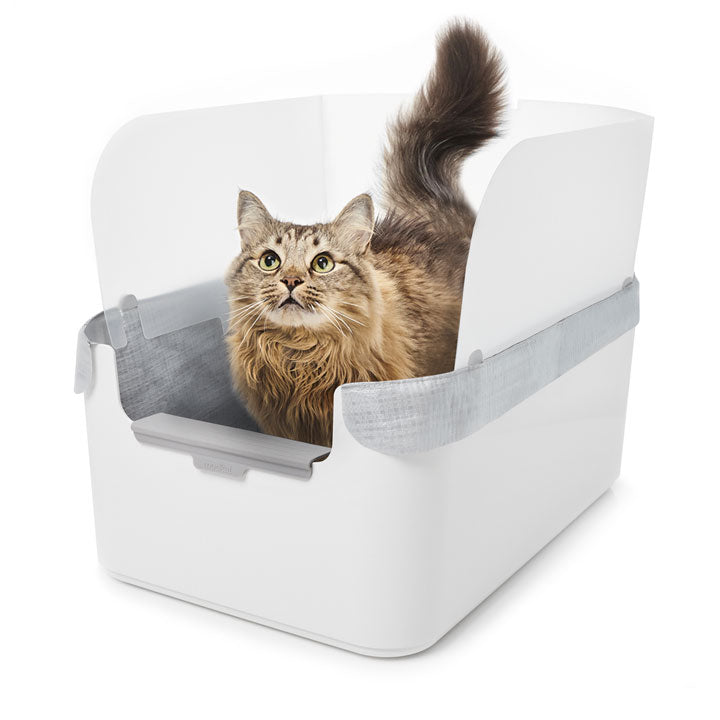
Modkat Tray
Open Litter Box
Bundles
Essentials
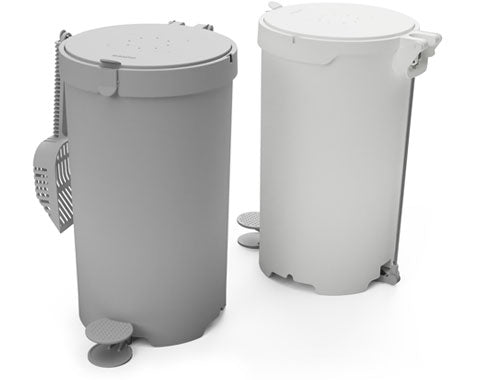
Litter Keeper
Two colors
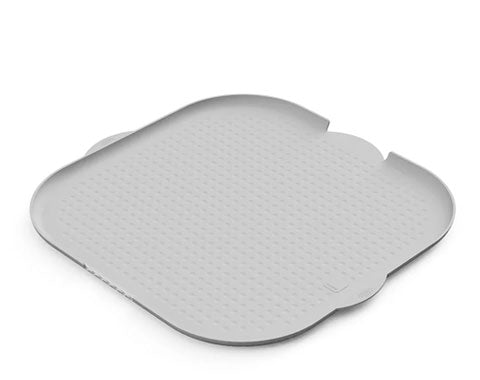
Litter Mats
Multiple styles, colors & sizes
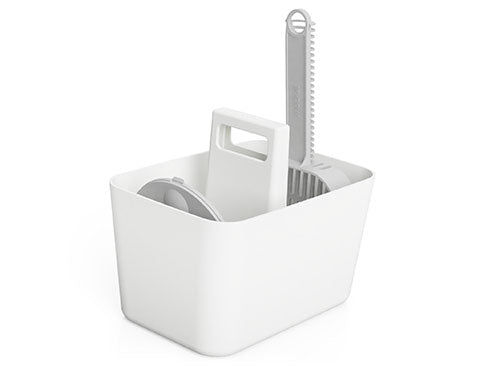
Tidy-Up Kit
Scoop holder & dustpan
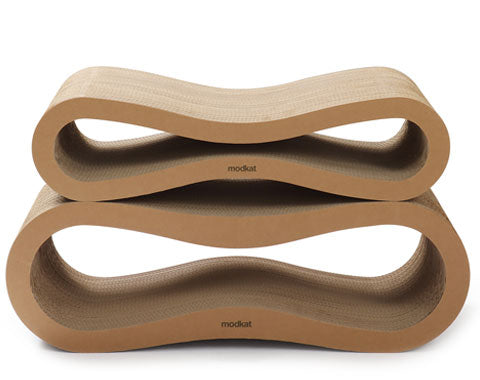
Lounge + Play
Scratchers & toys
Refills
Add description, images, menus and links to your mega menu
A column with no settings can be used as a spacer
Link to your collections, sales and even external links
Add up to five columns
Add description, images, menus and links to your mega menu
A column with no settings can be used as a spacer
Link to your collections, sales and even external links
Add up to five columns
Cat Adoption Guide.
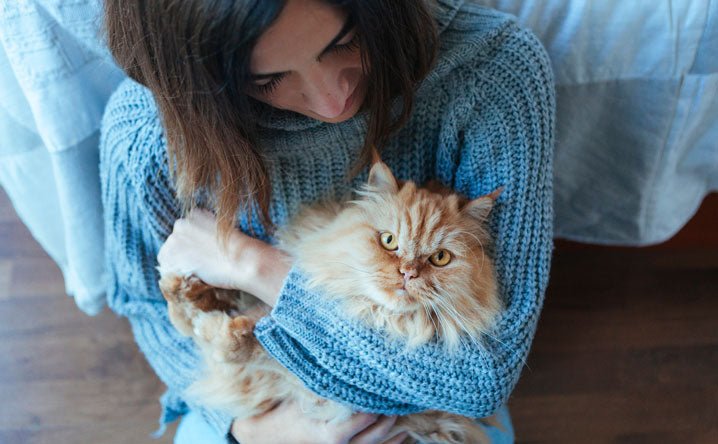
Shelter pets make the best companions!
Millions of cats and dogs live on the streets and in shelters. You can give them a chance at life in a loving home by adopting a cat.
What kinds of animals are in shelters?
According to the ASPCA, about 3.2 million cats and 3.1 million dogs enter America's pet shelters every year. That's a total of 6.3 million companion animals going to a shelter every year. While the total numbers have dropped since 2011's peak of 7.2 million, the number of cats has remained the same.
About 810,000 of these animals will reunite with their human families. Nearly all those who go home, however, are dogs. Of the pets that remain, shelters euthanize roughly 530,000 cats and 390,000 dogs each year.
Don't all pets who end up in shelters have behavior problems?
Actually, no. Most of these animals arrived through no fault of their own. Divorce, aging human parents, or a family move meant these furry friends landed in a cage at the local shelter.
Why should you adopt from an animal shelter?
Previously abandoned pets often make great companions. They're already house trained and accustomed to living with humans. Plus, shelter pets cost much less than animals from a breeder. You pay a modest adoption fee to cover the cost of shots, sterilization, and microchipping.
Adoption is also a great way to help shut down kitten or puppy mills. Yes, these still exist—places where less-than-savory people breed animals, raise them in poor conditions, and then sell them through pet stores or flea markets. By not pumping your money into this industry, you are helping put disreputable breeders out of business.
The benefits of pet adoption don't only flow one way. You can enjoy a great return on your investment in a companion animal. Research at Harvard University confirms that having a pet improves your mental and physical health because companion animals reduce the risk of heart disease and prevent loneliness.
What is the best type of cat to adopt?
Look for a cat that seems friendly and warm. An animal that nuzzles your hand, purrs when you touch it, and responds to your offer of friendship makes a great first pet especially for homes with children.
What about those cute, rambunctious kittens, though? A kitten means a lot of responsibility, but they might be just right for your family. Do your research, think about it, talk with another pet owner, and then make your decision.
In most cases, a senior cat is the safer choice. Usually calm and mature, these animals make great pets for kids and older adults. While you may have less time with an older cat, these pets seem to understand the gravity of their rescue, and their bond is even stronger for it.
Male or female? A cat of either sex can make a fantastic companion animal. What you want is a pet that's spayed or neutered. Toms and queens can demonstrate challenging behaviors.
But what if you had your heart set on a Persian, Ragdoll, or other specific breed? You still don’t have to buy from a breeder. About 25% of the cats living in shelters are purebreds. To find one, approach a breed-specific cat rescue association in your area or search by breed on www.petfinder.com.
If you don't locate a kitty who captures your heart on the first visit, don't be discouraged. Animal shelters acquire new cats all the time. Think of it like dating. You may not meet your ideal match right away, but a little stick-to-it-iveness can pay off big in the end.
Most importantly, adopt a cat you click with. You'll probably be living together for a long time so you want to enjoy each other's company.
What to know before adopting a cat.
And yes… cats typically live a long time. We're talking 12-15 years on average, and a 20-year-old cat is not unheard of. Are you ready for a commitment this big?
If you have pets at home, will your current dog or cat welcome a new roommate? Even if your animal loves other pets, you'll want to introduce the two of them slowly.
Knowledge is power, so learn all you can. For instance, check with your cat-friendly vet or feline nutritionist about the right kind of food for your new pet. Also find out about cat toys, litter boxes, eco-friendly cat litter, major feline illnesses, and how to keep your plants from making your pet sick.
Things to buy for a cat who's moving in with you:
Cats need supplies. You'll want to stock up before you bring your new pet home from the shelter. Here are a few items for your list:
- Food bowl and water dish — Whisker fatigue is a real thing. We suggest choosing a whisker-friendly bowl for your cat. Be aware that plastic bowls get scratched easily, and bacteria can grow in the scratches. Ceramic and stainless steel bowls are healthier choices.
- Scratcher — Cats scratch to stretch their backs, relieve stress, and sharpen their claws. Be assured that your cat will scratch something — either a scratcher or your furniture. We suggest a scratcher.
- Toys — Most cats love to play! Playing reduces anxiety, eliminates boredom, and helps cats sleep better at night. Invest in a pointer, a puzzle, a jingle ball, and a box until you find out what your cat likes best.
- Litter box — You need one box for each cat plus one extra. If your house has two stories, you should have at least one box on each floor. What kind of box is best? Check out our array of litter solutions.
- Cat litter — We don't recommend clay litter because it's terrible for the environment and not great for cats either. Wood pellets, grass seed, paper pellets, walnut shavings, and other green litter products absorb urine, minimize odor, and don't harm the planet.
- Cat tree — Cats often feel secure when they can perch above the fray. A cat tree lets your pet scamper to her safe spot whenever life gets a little hectic.
Also be sure to find a vet in your area if you don't already have one.
What kitten or cat adoption agencies are near me?
Cat adoption centers and pet adoption events publish information on their websites. Also, we created this handy guide to help you locate cat adoption agencies in major US cities:
• Chicago—PAWS Chicago, Chicago Cat Rescue, Harmony House for Cats
• Boston—Animal Rescue League of Boston and Northeast Animal Shelter
• Washington, DC—Feline Foundation of Greater Washington
• New York City—Animal Care Centers of NYC
• Houston—Houston Pets Alive and Friends for Life Animal Shelter
• Los Angeles—Kitten Rescue and Los Angeles Animal Services
• Atlanta—Furkids and Atlanta Humane Society
• Seattle—Seattle Humane and Seattle Area Feline Rescue
• Phoenix—Halo Animal Rescue and Cactus Cats Rescue
• Minneapolis / St. Paul—Twin Cities Pet Rescue and Feline Rescue
Check online for agencies near your home.
What should new cat parents know?
When you’ve selected your new cat companion—be it a black cat, a pedigree Abyssinian, or an orange-and-white cutie—how do you get started as a pet parent?
Check out our Modkat Ultimate Guide to New Cat Ownership for tips on feeding, cat toys, vet visits, and safe cleaning tips. Don’t forget to add an extra litter box for your new cat. Use our article on selecting the right litter box to help you choose.
Shop the Modkat litter boxes and accessories so you have everything you need to welcome your cat or kitten into your new home.
“It looks nicer than any other hooded or open option we considered.”

Categories
Meow from Brooklyn.
Sign up and get early access to product drops, exclusive offers, and the occasional cat meme.
Similar products related to this blog:
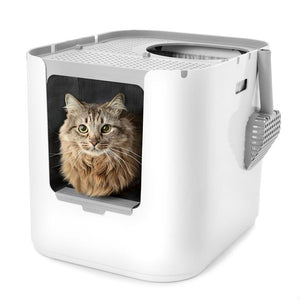
"It looks nicer than any other hooded or open option we considered."

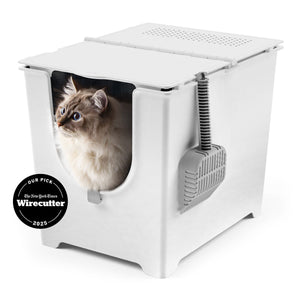
"This litter box keeps everything in, nothing gets out the sides."
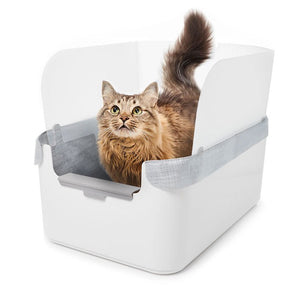
"My beautiful ragdoll cat and I both love the new Modkat Litter tray!"

